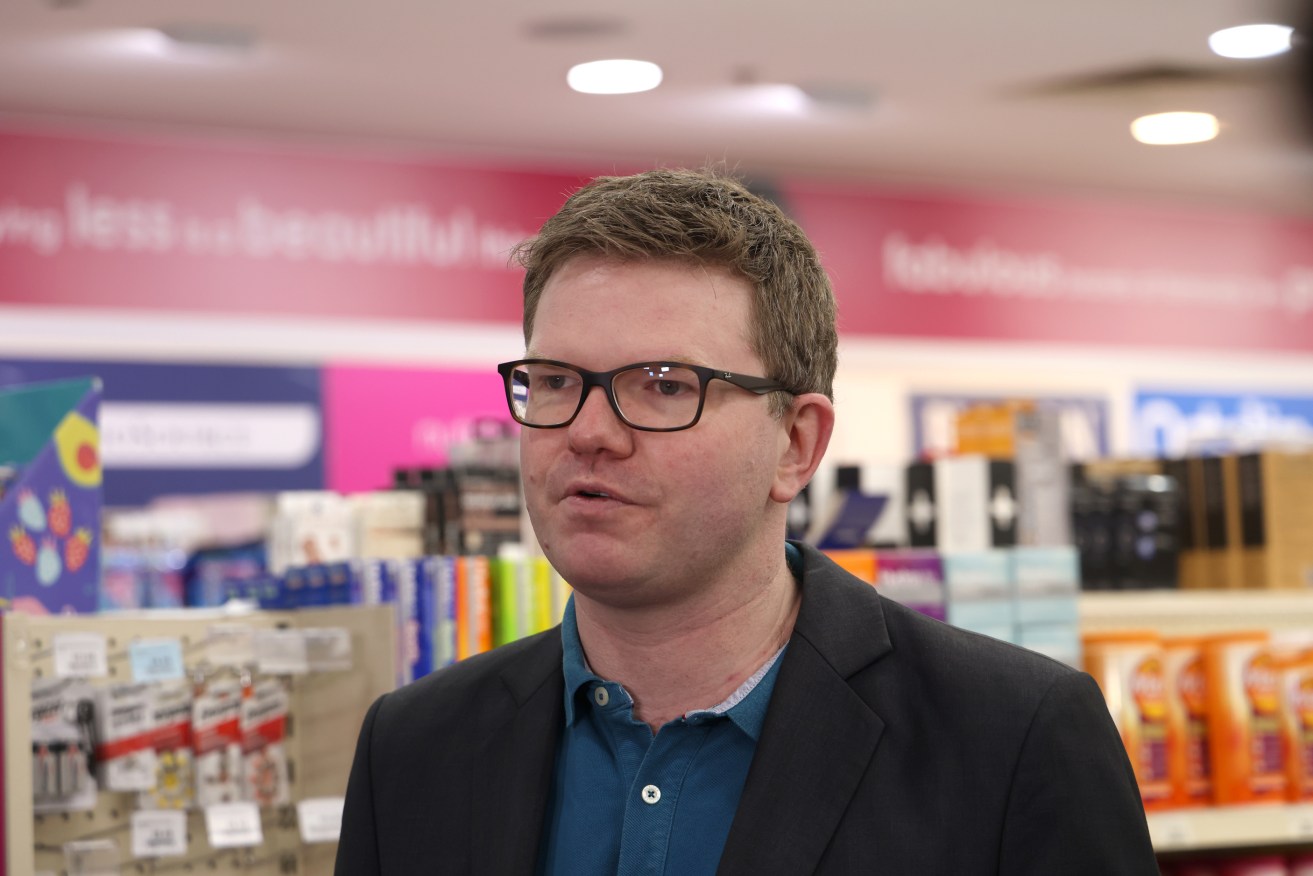Pharmacy push to ease palliative patients out of hospital EDs
More South Australians with a terminal illness will be able to receive treatment at home rather than in crowded hospital emergency departments, with $250,000 of state government funding to boost the number of pharmacies that stock palliative care medicines.

Health Minister Chris Picton. Photo: Tony Lewis/InDaily
At least 30 community pharmacies across regional and metropolitan South Australia will receive the funding over four years to stock six different types of palliative care medicines.
Currently, an estimated one in four pharmacies in South Australia don’t stock the medications, as they expire relatively quickly.
According to tender documents released by SA Health this week, some palliative care patients have resorted to visiting emergency departments to access medication to relieve their symptoms, especially after-hours – putting more pressure on the state’s overstretched hospital system.
“South Australians have one of the longest life expectancies in the world, with an ageing population there are increasing rates of chronic conditions and age-related illnesses leading to an increased demand for palliative care services,” the documents state.
“It is understood that people approaching the end of life are attending emergency departments to access palliative care medicines, especially after hours.
“For palliative care patients who wish to receive their palliative care at home, improving availability and access to medicines used to manage end of life symptoms in the community is patient-centred and key to avoiding hospital presentations.”
A spokesperson from SA Health said the department was seeking a supplier to manage a network of pharmacies to provide the medicines.
They said the pharmacies would provide advice, including after-hours, and would dispense urgent prescriptions from an agreed core list of palliative care medicines.
“This initiative provides a further option and certainty for patients and carers to access these medicines through community pharmacies on prescription from their specialist or primary care provider,” they said.
Labor committed $250,000 ahead of last year’s state election to fund at least 30 pharmacies to start stocking the medications over a four-year period.
Health Minister Chris Picton said the government heard from many clinicians and families that after-hours access to palliative care drugs was a “limiting factor” on providing community palliative care services.
He described the funding set aside by the government as “modest”, but said it had the potential to improve patient outcomes.
“Delivering on this election commitment will improve access to palliative care medicines for those who need it most and recognise the role pharmacies have to play in this important area. I encourage all interested pharmacies to participate in this tender process,” he said.
“This is one of many pharmacy election commitments targeted at strengthening the role of pharmacists in improving patient care.
“This also follows that I have recently ordered a review of palliative care services which will be undertaken by the Health Performance Council.
“We are also delivering an additional 10 palliative care nurses across regional South Australia to further boost access across the state.”
It comes after SA Health in February started searching for three pharmacies willing to stay open around the clock from July, under a separate state government election promise to ease pressure on hospital emergency departments.
Tender documents released by the department last month called for expressions of interest from pharmacy services in Adelaide’s north, south and centre, with all three businesses to receive a combined total of $900,000 over three years to extend their hours, including on public holidays.
Meanwhile, latest SA Health data, also released last month, shows at least six terminally ill South Australians have died after choosing to access the state’s voluntary assisted dying system introduced on January 31.
The data showed that 32 people had made a first request to access voluntary assisted dying (VAD), while 11 people had been issued permits to receive a VAD substance to cause their death.
SA Health last year estimated that approximately 140 South Australians with a terminal illness would access VAD in its first year of operation.
It also estimated that around 50 to 60 people would begin the VAD process each month.




